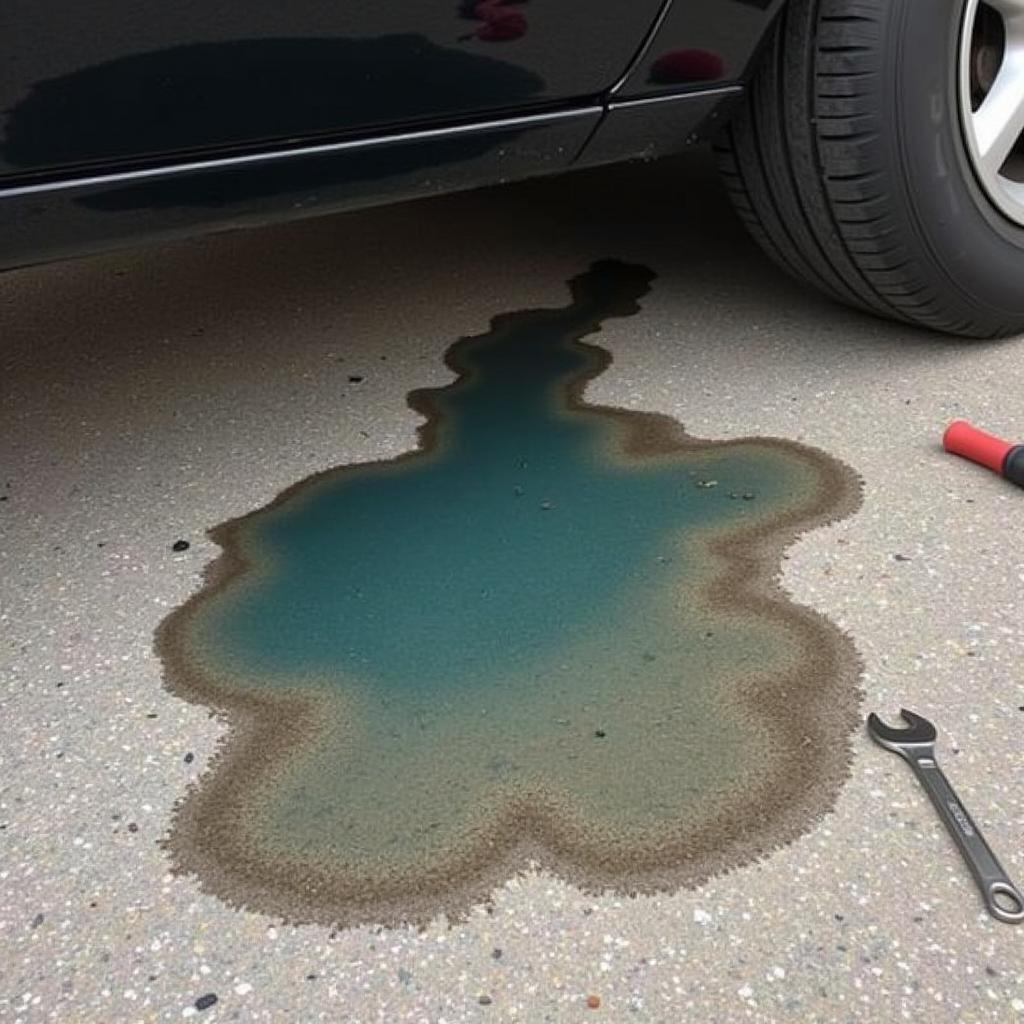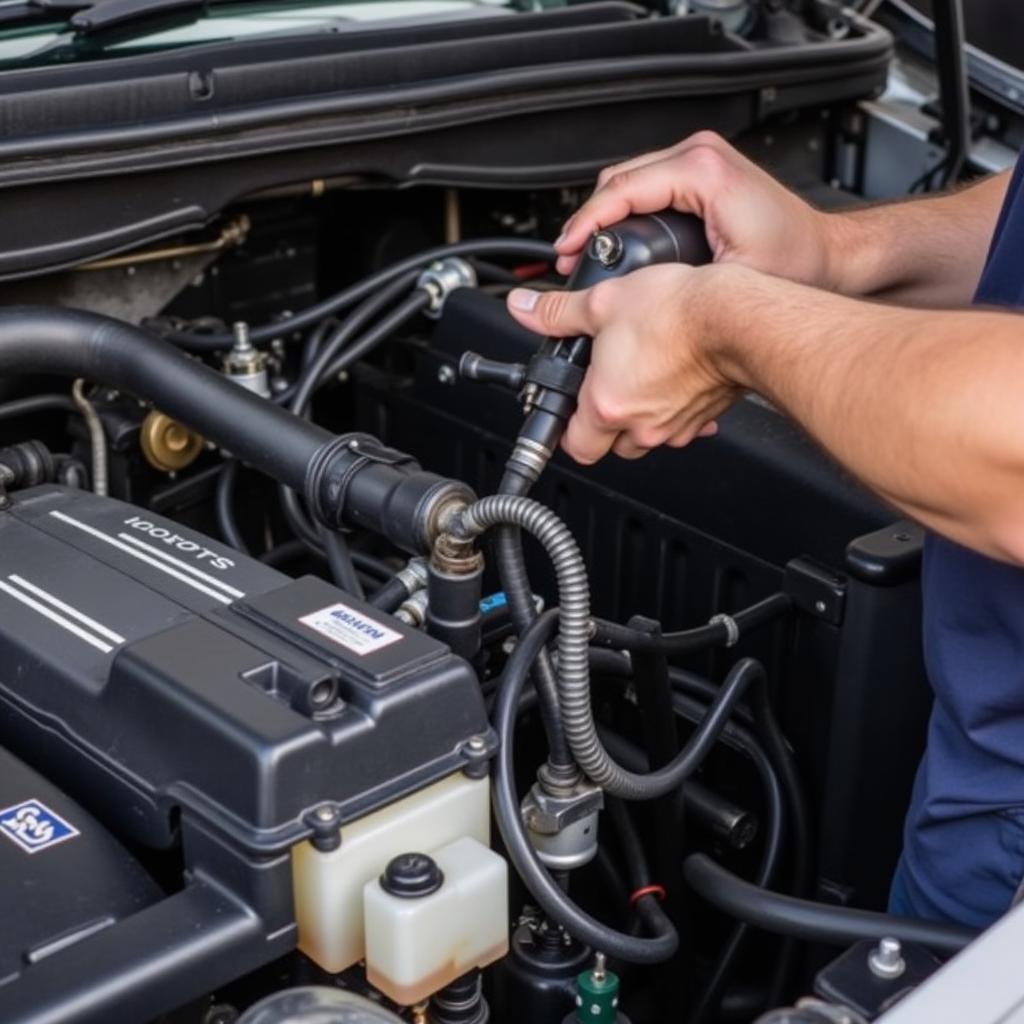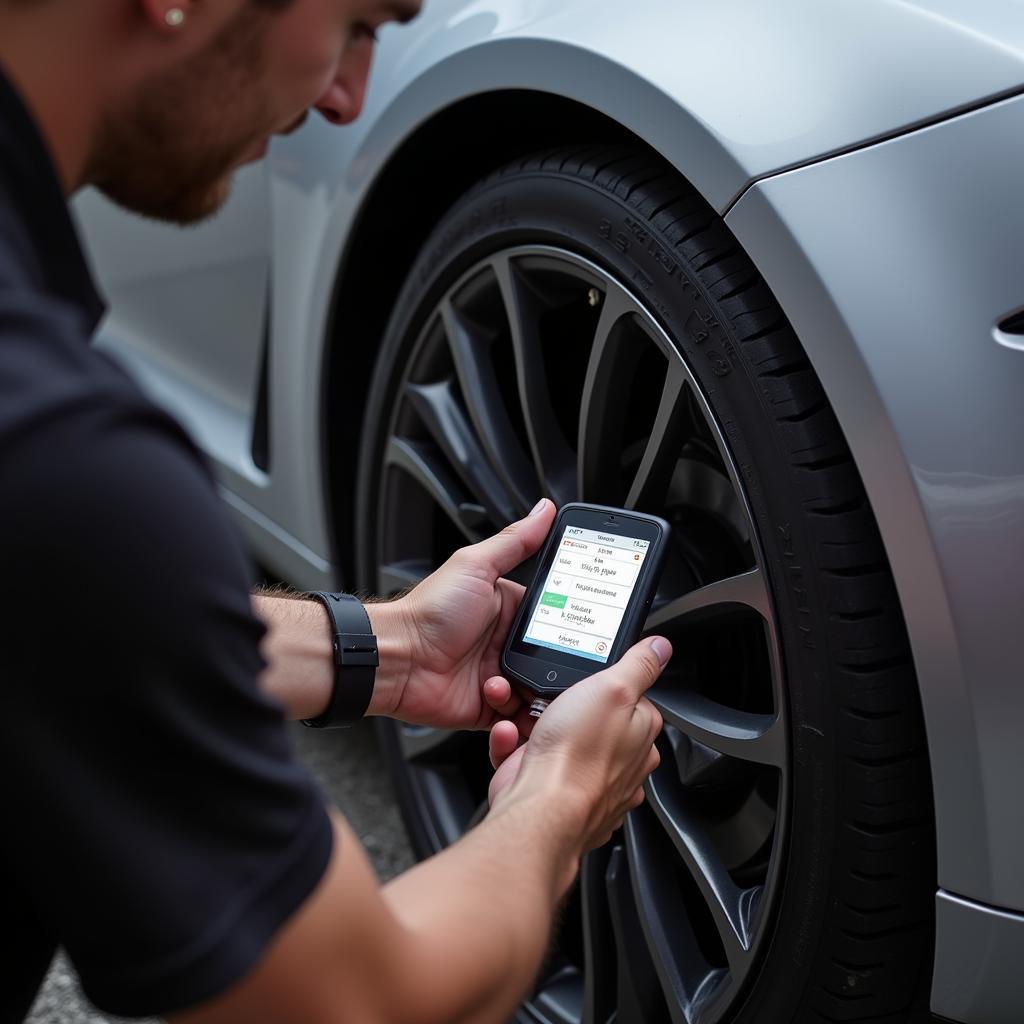Car Losing Water After a Service: What Could Be Wrong?
If your car is losing water after a service, it can be understandably concerning. This issue, while sometimes simple, can also indicate a more serious problem if left unchecked. Don’t panic! This article will guide you through the potential causes, how to diagnose them, and what steps to take to rectify the situation.
Common Reasons for Water Loss After a Car Service
There are several reasons why your car might be losing water after a recent service. Some are minor and easily fixed, while others require professional attention. Here’s a breakdown of the most common culprits:
- Loose or Damaged Hose: During a service, hoses might be accidentally dislodged or damaged. This can lead to leaks, especially in the cooling system.
- Incorrectly Installed Components: If parts of the cooling system, such as the radiator or water pump, weren’t installed correctly during the service, leaks can occur.
- Cooling System Flush Issues: A coolant flush, while beneficial, can sometimes dislodge debris that subsequently blocks passages or causes leaks in weaker areas of the system.
- Overlooked Pre-Existing Issues: Sometimes, a pre-existing small leak might be exacerbated by the service, making it more noticeable.
- Airlock in the Cooling System: An airlock can prevent coolant from circulating properly, leading to overheating and apparent water loss.
 Car Coolant Leak After Service
Car Coolant Leak After Service
Diagnosing the Problem
Identifying the source of the leak is crucial. Here’s how you can try to pinpoint the problem:
- Check the Coolant Level: Regularly monitor your coolant level when the engine is cold. A consistently low level indicates a leak.
- Inspect for Visible Leaks: Look under the car for puddles or drips. Note the color and consistency of the fluid. Coolant is typically green, orange, or pink.
- Pressure Test the Cooling System: A pressure test can reveal leaks even if they’re not visibly apparent. This is best done by a professional.
- Check for White Smoke from the Exhaust: White smoke can indicate a coolant leak into the engine cylinders, a serious problem requiring immediate attention.
- Monitor the Temperature Gauge: Overheating can be a symptom of a coolant leak. If your car is overheating, pull over immediately and let the engine cool down.
What to Do if Your Car is Losing Water
If you notice your Car Losing Water After A Service, take the following steps:
- Contact the Service Provider: Inform the garage or mechanic who performed the service immediately. They should be responsible for rectifying any issues related to their work.
- Don’t Drive the Car if it’s Overheating: Driving an overheating car can cause significant engine damage.
- Top Up the Coolant: If the leak is minor and you need to drive a short distance to a mechanic, top up the coolant to a safe level. However, this is only a temporary solution.
“Often, a simple loose hose clamp is the culprit,” says John Miller, a certified master mechanic with over 20 years of experience. “However, overlooking a leak can lead to expensive repairs down the line.”
Preventing Future Issues
- Regular Maintenance: Regular car coolant service near me can help prevent cooling system problems before they arise.
- Inspect Hoses and Connections: Periodically check for signs of wear and tear on hoses and connections.
- Use the Correct Coolant: Using the wrong type of coolant can damage the cooling system. Refer to your owner’s manual for the recommended coolant type.
 Mechanic Inspecting Car Cooling System
Mechanic Inspecting Car Cooling System
Conclusion
Discovering your car losing water after a service can be frustrating, but understanding the potential causes and taking appropriate action can save you time, money, and further headaches. Don’t hesitate to contact the service provider or a qualified mechanic for assistance if you’re unsure about anything. Regular maintenance and proactive checks are your best defense against cooling system problems. Addressing any leaks promptly will ensure the longevity and reliability of your vehicle.
FAQ
- Is it normal for a car to lose a little water? Some minor evaporation is normal, but significant water loss is not.
- Can I just add water to my coolant? It’s recommended to use the correct coolant mixture as specified in your owner’s manual. Using only water can dilute the coolant and reduce its effectiveness.
- How much does it cost to fix a coolant leak? The cost varies depending on the cause and severity of the leak.
- How often should I check my coolant level? Check your coolant level at least once a month.
- What color should my coolant be? Coolant is typically green, orange, or pink. Check your owner’s manual for the correct color for your car.
- Can I drive my car if it’s leaking coolant? It depends on the severity of the leak. If the car is overheating, do not drive it.
- What causes a car to overheat? Several factors can cause overheating, including a coolant leak, a faulty thermostat, or a malfunctioning radiator fan.
Common Scenarios for Car Losing Water After Service:
- Scenario 1: After a routine oil change, you notice a small puddle of green fluid under your car. This could be a dislodged hose clamp.
- Scenario 2: Following a radiator flush, your car starts overheating and losing coolant rapidly. This could indicate a dislodged piece of debris causing a blockage.
- Scenario 3: After having your water pump replaced, you notice a slow leak. This might suggest the pump wasn’t installed correctly.
Related Articles:
- For information on finding a reliable coolant service near you, check out our article on car coolant service near me.
Need further assistance? Contact us via WhatsApp: +1(641)206-8880, Email: [email protected] or visit us at 456 Oak Avenue, Miami, FL 33101, USA. Our customer service team is available 24/7.

